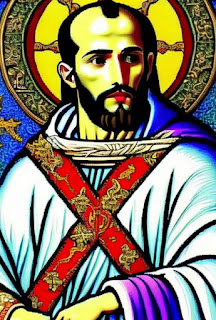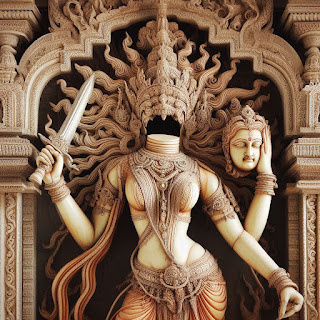On Christian Mysticism
Hey y'all, I'm back, this time with another blog post on Christian mysticism. Now, I know what you're thinking: "Wow, Che, you really know how to pick the most esoteric topics out there!" And you know what? You're not wrong. But hear me out, because Christian mysticism is fascinating, complex, and often misunderstood.
I've always been drawn to the more spiritual and mystical aspects of religion. Growing up in the South, Christianity was everywhere, but it was always presented to me as this rigid, dogmatic system with no room for interpretation or questioning. I don't have to tell you that as a queer person, that wasn't for me. But then I discovered Christian mysticism, and suddenly the world of religion opened up to me in a whole new way.
So what exactly is Christian mysticism? Well, at its core, it's the belief that we can have a direct, personal experience of the divine. It's not about blindly following a set of rules or doctrines, but rather about cultivating a deep, intimate relationship with God. This can be done through various practices, such as meditation, contemplation, prayer, and even ecstatic experiences.
One of the key figures in Christian mysticism is St. John of the Cross, a Spanish mystic and poet who lived in the 16th century. He wrote extensively about the "dark night of the soul," a period of spiritual crisis where one feels abandoned by God and must undergo a process of purification in order to come out on the other side with a stronger, deeper faith. This might sound scary, but for many mystics, the dark night is seen as a necessary part of the spiritual journey.
Another important aspect of Christian mysticism is the idea of "divinization" or "deification." This is the belief that through our relationship with God, we can become more like God, and eventually even share in God's divine nature. This doesn't mean we become God ourselves, but rather that we become more fully human, more fully alive, and more fully in tune with the divine.
Of course, Christian mysticism is not without its controversies. Many mainstream Christian denominations view it with suspicion or even outright hostility, seeing it as a threat to their established doctrines and practices. And as a queer person, I can't ignore the fact that many mystics throughout history have been persecuted for their beliefs and experiences.
But for me, Christian mysticism offers a way of engaging with spirituality that is deeply personal, deeply transformative, and deeply queer. It's a way of experiencing the divine that isn't constrained by gender, sexuality, or any other societal norms. It's a way of finding meaning and purpose in a world that often feels chaotic and meaningless. And it's a way of connecting with something greater than ourselves, something that transcends all boundaries and labels.
So if you're curious about Christian mysticism, I encourage you to dive in and explore it for yourself. There's a rich tradition of mysticism within Christianity, and it's one that deserves to be celebrated and embraced, quirks and all.




Comments
Post a Comment